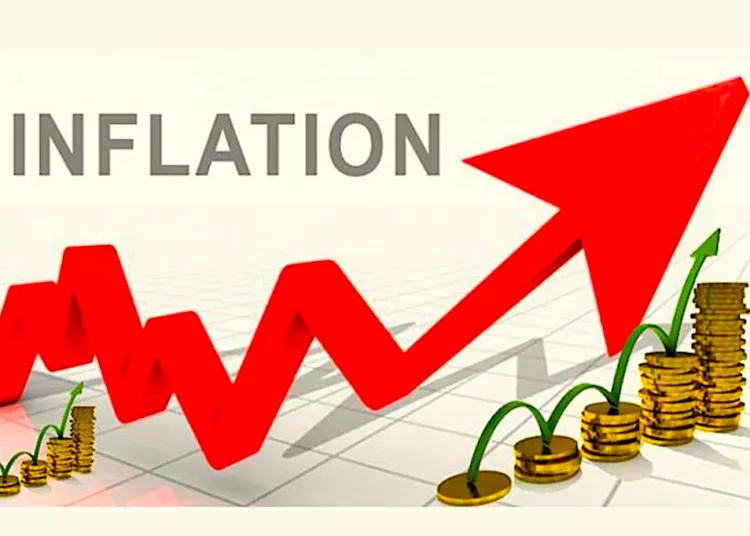Despite a three-month streak of moderating inflation, economic analysts are cautioning that a resurgence in price growth may be on the horizon.
An analysis of the data released last week by the National Bureau of Statistics (NBS) shows the consumer price index for June , which measures the rate at which prices of goods and services rise, tempering for the third consecutive month.
After headline inflation figures showed consecutive declines since April, analysts observed a modest easing in price increases for essential goods and services. In Nigeria, for instance, the year-on-year inflation rate eased to 22.22 per cent in June 2025, down from 22.97 per cent in May and continuing a recent softening trend.
Data by NBS showed that headline inflation continued to cool, slowing by 0.75 per cent to 22.22 per cent in June from 22.97 per cent in May. Compared to June 2024, when inflation stood at 34.19 per cent, the figure marks a significant 11.97 per cent drop and a pullback from last year’s inflation spiral majorly due to the rebasing.
However, the story was mixed as core and food inflation rose, despite the easing of the headline inflation. Core inflation increased to 22.76 per cent from 22.28 per cent in May, while food inflation also rose to 21.97 per cent from 21.14 per cent.
On a monthly basis, food inflation surged by 1.07 percentage points to 3.25 per cent month-on-month, with notable increases recorded in core food items such as green peas (dried), fresh pepper, shrimps, crayfish, meat, tomatoes, plantain flour, and ground pepper.
This uptrend reflects renewed supply-side shocks, largely driven by insecurity in key agricultural regions, which disrupted farming activities and supply chains during the month under review.
Similarly, core inflation, which excludes food and energy, reversed its softening trend since April. Core inflation rose significantly to 2.46 per cent month-on-month, compared with 1.10 per cent month-on-month in the previous month.
According to analysts, the rise in food and core inflation is caused by the natural disasters and rising insecurity in the country, particularly terrorist attacks in key food producing states.
Recently, Benue, one of Nigeria’s top agricultural states, had suffered a major attack in June and another attack had occurred in Plateau State, another major food-producing region in July.
Analysts at Commercio Partners note that, “as farmers and residents flee these areas for safety, agricultural activities are disrupted, and food losses increase. While the full impact of these incidents is not yet reflected in the June inflation data, insecurity looms as a significant threat to food production in Nigeria.”
Meanwhile, the Nigerian Meteorological Agency has issued a flash flood risk alert for July 2025, identifying several food-producing states with a high likelihood of experiencing flash floods. Sokoto, one of Nigeria’s key agricultural states, was listed as the most at-risk state for the month.
Commercio Partners note that, potential flooding in these key areas “threatens agricultural activities, particularly in vulnerable regions, and could severely disrupt food production. In the near term, this is likely to increase food inflation due to reduced supply and logistical constraints.
“In July, we expect inflation to inch higher. Although the base effect could help moderate the increase, its impact may be limited since July 2024 already recorded relatively low inflation. Persistent insecurity in food producing areas, highlighted by the recent attack in Plateau State, continues to drive food inflation.
“Additionally, the flash flood risk alert poses further threats to food supply and prices. Energy costs are expected to ease slightly, as Dangote refinery slashed fuel prices again in July by 20 naira, bringing the pump price to 820 naira per litre. However, this decrease may not be enough to offset the upward pressure from rising food prices and the limited base effect. Core inflation is expected to increase in July, but at a slower pace than the increase recorded in June 2025.”
Similarly, analysts at Cowry Research note that the resurgence in food and core indices in June reflects the re-emergence of latent inflationary pressures, which could reverse recent disinflation gains if not properly contained.
To them, “Key concerns include the resurgence of insecurity situation and flooding across food producing regions, input cost passthrough from energy and logistics, and the lag effect of FX volatility on non-food segments. If these pressures persist, there is a risk that the headline index could pivot upward in subsequent months.
“Thus, we forecast a moderate decline in headline inflation to 21.82 per cent year-on-year in July 2025, driven by expected improvements in food supply logistics and the base effect from prior high readings. However, we remain cautious given the uptick in core inflation and sector-specific price increases.”





